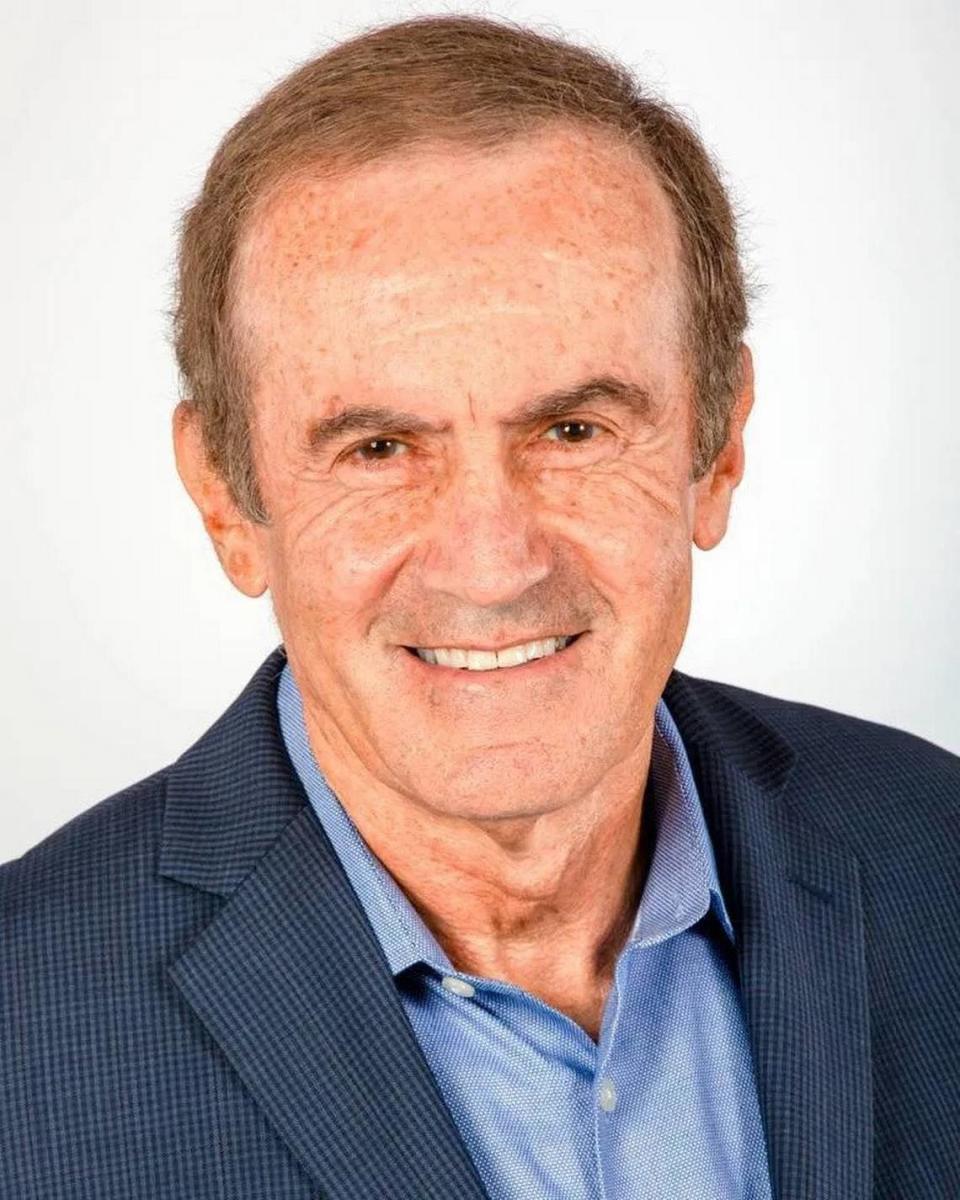Venezuelan opposition leader Juan Guaidó is right: U.S. must get tougher on Maduro dictatorship | Opinion
- Oops!Something went wrong.Please try again later.
- Oops!Something went wrong.Please try again later.
- Oops!Something went wrong.Please try again later.
Hours after Venezuelan opposition leader Juan Guaidó landed in Miami after being thrown out of Colombia, I talked with him extensively about Colombian President Gustavo Petro’s initiative to mediate Venezuela’s political crisis — and whether the Biden administration should take a harder line on Venezuela.
Guaidó was brutally frank — and right — on both issues.
The circumstances that led to Guaidó’s arrival in Miami on April 25 could be the plot of a Hollywood movie.
Guaidó says he was effectively expelled from Colombia shortly after his arrival in the capital and put on a plane to Miami
He had secretly crossed the border into Colombia by land to meet with U.S. and European diplomats who were in Bogota for a meeting on Venezuela convened by the Colombian government.
But once Guaidó arrived in Bogota, he learned through U.S. diplomats that Petro’s government was threatening to deport him to Venezuela unless he left immediately on his own.
Simultaneously, the Venezuelan regime had called Guaidó’s family back home, threatening to retaliate against his relatives unless he left Colombia immediately, he told me.
Colombia’s leftist government says Guaidó was not deported, but it conceded in a statement that Colombian migration officials had “accompanied” the opposition leader to the Bogota airport, because he had entered Colombia illegally.
However, that argument is not just contradictory. it also is devious, because Guaidó and other opposition leaders are subject to travel bans from the Maduro regime and could not have entered Colombia with valid Venezuelan travel documents.
Until Colombia’s Petro took office last year, Venezuelan opposition leaders were allowed to get into Colombia without any hassles at the Colombian-Venezuelan border.
When I asked Guaidó whether Petro can be trusted as a well-meaning negotiator in talks to broker conditions for free elections in Venezuela in 2024, Guaidó said that Petro is not neutral. “He supports the Maduro regime,” he says.
To emphasize his point, Guaidó said that Petro has met several times with Maduro in Venezuela, but has never met with opposition leaders during those visits. “His agenda speaks for itself on what his priorities are,” Guaidó told me.
The Colombian president’s mediation plan ostensibly calls for Maduro to take steps toward free elections “in parallel” with the Biden administration’s gradual lifting of U.S. sanctions on Venezuela. But Guaidó says that Colombia is pressing much harder for U.S. sanctions on Venezuela to be lifted than for getting Maduro to hold free elections.
As for what the Biden administration should do, Guaidó told me that, “Any lifting of sanctions without progress toward free elections would be giving in to the dictatorship.” He added, “At this moment, we have to be even harsher with the Maduro regime if it does not comply with what’s in the constitution.”
Elaborating, Guaidó said the United States “has to be much tougher with the Maduro regime and set terms, conditions and deadlines for the 2024 elections.” He added, “We are not asking for anything that is not in the constitution.”
In practical terms, this means that the Biden administration would keep U.S. sanctions intact unless Maduro, among other things, frees political prisoners, sets an electoral timetable and allows a free opposition primary election and freedom of the press.
Current U.S. sanctions prohibit American companies from exporting Venezuelan oil, with a few exceptions that do not involve payments to the Venezuelan government.
The Biden administration has said that it does not rule out relaxing sanctions, but only “in response to constructive steps by the Maduro regime.” However, it has yet to spell out what specific steps Maduro would have to take for the United States to start lifting economic sanctions.
Guaidó is right. It’s time to call Colombia’s president what he is: an ally of Venezuela’s dictatorship. Petro’s expulsion of Guaidó from Colombia, knowing that the Venezuelan opposition leader couldn’t have entered Colombia with valid Venezuelan documents, was a shameful example of this.
And Guaidó is also right in demanding that the Biden administration and the international community step up the pressure on Maduro to hold free elections in 2024. Unlike former President Trump, who didn’t care much about democracy at home or abroad, Biden vowed to make the defense of democracy around the world a pillar of his foreign policy.
Venezuela is a great opportunity for the president to prove that he intends to keep his promise.
Don’t miss the “Oppenheimer Presenta” TV show on Sundays at 8 pm E.T. on CNN en Español. Blog: www.andresoppenheimer.com


